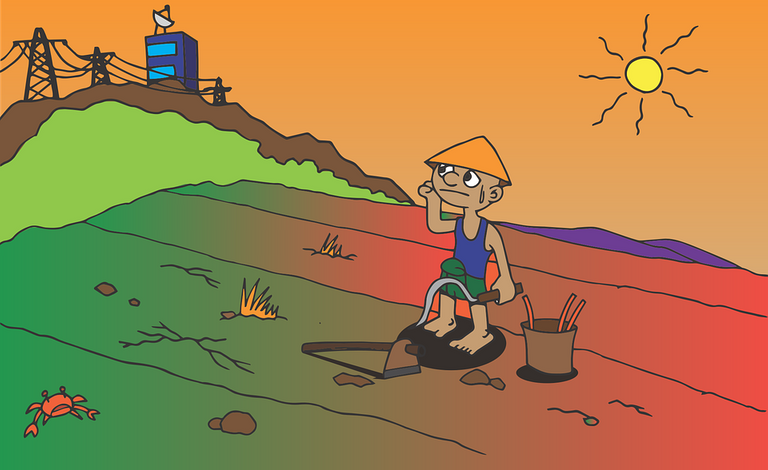Written by:Diomer Antonio Galán Rincón.
Bachelor's Degree.Public Accounting / MSc.Science of Higher Education.

Image taken from:Pixabay
The agricultural sector has undergone a series of negative transformations, due to the crisis that the country has been experiencing for many years. This is mainly due to the agricultural policies that have been implemented, bringing about the need for education, farmer motivation and technical guidance for agricultural activity.
One of the most serious problems currently faced by agricultural production units in Venezuela, in spite of those already mentioned, is the lack of training and administrative control in all procedures and/or activities carried out on a daily basis. In this sense, the financial economy, the final element of the agricultural activity, has been neglected, leaving the price of the products only to the supply and demand of the market, but without taking into account the increase in the costs incurred in agricultural production.
The problems caused by inflation and its variability have a negative impact on production costs and the growth rate of the economy, due to the distorting effects on the input price system and the allocation of resources; however, production costs are an important factor to determine in any productive process and the profitability that can be generated from it.
The visible results show that the monetary base and the speculative exchange rate are the main factors that influence the inflationary process, therefore, every production unit must be prepared to face the current inflationary situation and be able to innovate and constantly apply strategies that allow them to adjust their costs, These are the most important costs within any industry, company, organization or production unit, thus constituting an aspect that requires a detailed analysis, since they form the basis for the survival of organizations, as well as a determining factor of their profitability, which must be considered at the time of making decisions.

Image taken from:Pixabay
In Venezuela, the historical inflationary records published by the Central Bank of Venezuela reveal that the worst economic crisis since independence was recorded in the last decade of the 20th century, mainly due to the political problems to which the country has been subjected and the large number of inflationary episodes of varying intensity, naturally.
It should also be noted that no market economy escapes being subject to inflationary conflicts, however short and low inflationary levels may be, however, in Latin American economies and especially ours, it is where the pressures of change in reference prices (which are revealed in the form of struggles) are stronger and more repeated than those experienced by a developed country, and where inequalities, disarticulation and the lack of a common project within groups or sectors are more representative
At present, the agricultural sector is feeling the impact of the inflationary impact on the real costs of production, since the purchase of agricultural inputs has a variable cost because there is no economic stability and they are forced to buy them at a high cost, with a loss in the purchasing power of their goods.
In this regard, Polimani, Fabozzi and Adelberg (1994), state that "A cost is the value sacrificed to acquire goods and services, which are measured in a monetary unit (Bolivars in our case), by reducing assets or incurring liabilities at the time the benefits are obtained, at the time of acquisition, the cost incurred is in order to obtain benefits in the short term and in the future".
Therefore, companies need to determine more accurately their production costs, realize their business opportunities and optimize decision making, in order to improve them..
These costs have increased in relation to previous years, it is presumed that the increase in production costs is due to the inflationary phenomenon occurring in the country, which brings the decline in economic performance decreasing the profitability and production of agricultural units, since it can not acquire the same amount of agricultural inputs by the high cost of the same coupled with the shortage of raw materials for the processing and production of such inputs, thus hindering the achievement of the objectives set and affecting the economic prosperity.
I hope you like my article and I would appreciate all your comments.